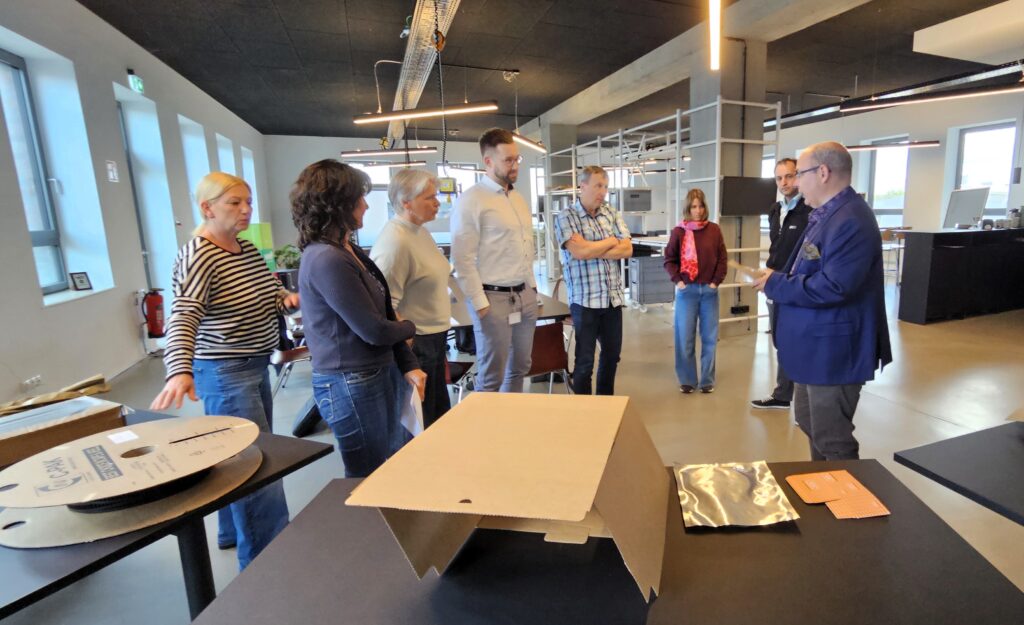Everything you always wanted to know about fiber-based packaging: On May 22, 2025, we held a workshop on this topic in the Hafenraum.
A supposedly dry topic such as the new EU Packaging and Packaging Waste Regulation (PPWR) turned out to be an interesting round of knowledge thanks to our knowledgeable expert and lively questions from the group as well as subsequent discussion on objects brought along.
On May 22, 2025, managers from different areas of our member companies came together as designers, product developers, purchasing managers, material compliance managers and supply chain managers to focus more intensively on the recyclability of fiber-based packaging – a topic that unites them all.
The workshop was led by Dr. Arne Krolle from PROPAKMA GmbH. As an expert in the field of paper production and the waste paper cycle, he also prepares expert reports on the paper and packaging value chain. In the first part of the workshop, we were able to learn more about the individual process steps in paper production in a very lively and vivid way. Germany is the largest paper manufacturer in Europe. There are more than 1300 types. There are at least 60 different types in every household.
Paper as a raw material is processed in many ways. For later recycling, it is also important, for example, which colors and inks are printed on it, whether composite materials are contained in the packaging and much more.
Dr. Krolle gave an overview of the legal framework of the new EU regulation and provided many interesting details on pending decisions and the further development of individual aspects of the PPWR.
All participants had brought packaging from their companies. The last part of our workshop focused on these cartons and packaging. Dr. Krolle examined them individually and gave recommendations for further use or clarification of the extent to which they are suitable, improvable and recyclable.
The most important insight of the afternoon was that all companies should start thinking about what their packaging looks like at an early stage, because from 2030, only packaging that can be recycled will be permitted.
This topic is sometimes underestimated, as the PPWR will legally apply from 2028 and there will be a considerable need for clarification for all companies during the transition period.
The first priority here is for companies to determine whether they are considered to be placing products on the market and therefore have to comply with the requirements of the EU regulation. This may mean that they are responsible for the correct labeling and composition of the packaging.
Many questions were answered and the lively discussion repeatedly brought up new aspects, some of which have not yet been legally clarified.
We would like to take this opportunity to thank Dr. Arnold Krolle for sharing his expertise with us and for allowing us to experience this varied and informative workshop with him.
The topic will remain topical in our network.
For an initial overview, you can find all the information about the workshop in our NIRO app.
